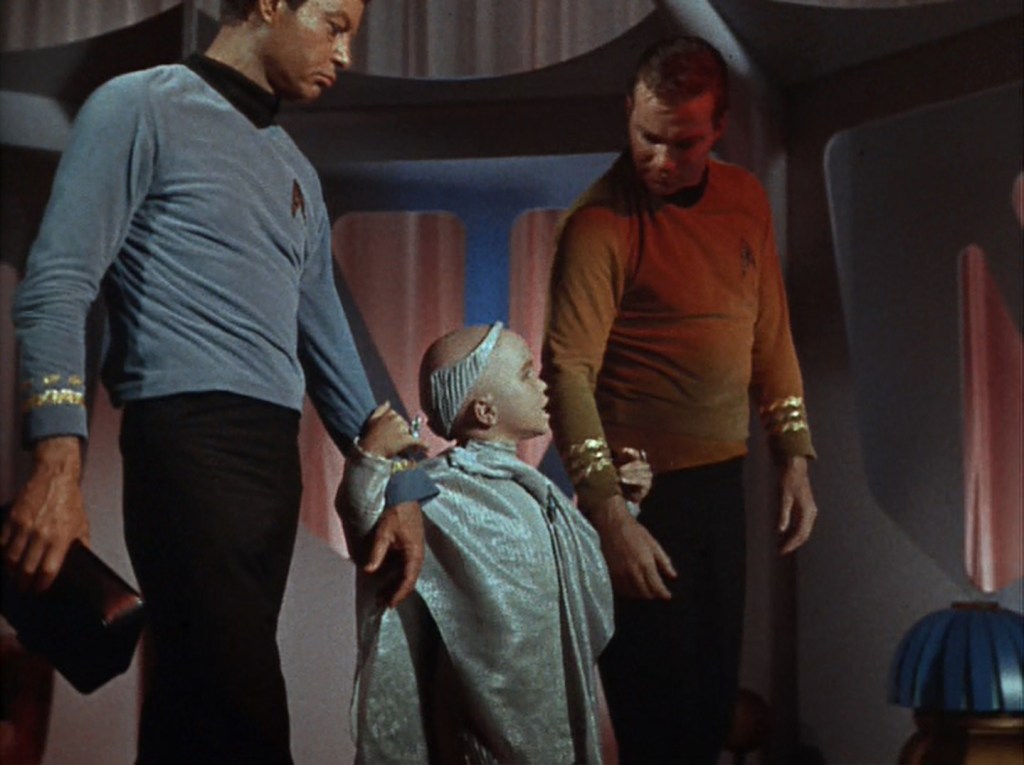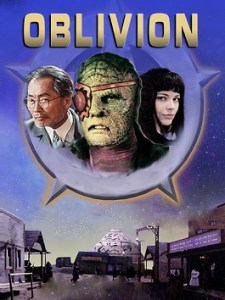
“The Corbomite Maneuver,” one of the earliest of the original STAR TREK episodes ever filmed, first aired on November 10, 1966. In this episode, the Enterprise, under Captain Kirk’s command, encounters a mysterious cube blocking its path in uncharted space. When attempts to communicate fail, the cube emits radiation, forcing the crew to destroy it. This action provokes a powerful alien vessel, the Fesarius, commanded by Balok, who accuses the Enterprise of trespassing and announces its imminent destruction. Kirk, facing a seemingly unbeatable foe, bluffs by claiming the Enterprise is equipped with a fictional “corbomite” device that would destroy any attacker. As a tense standoff takes place, Kirk’s gamble pays off when Balok blinks first and initiates contact, leading to a somewhat surprising conclusion.
I’ve watched some of the STAR TREK movies and TV shows over the years, but I’m nowhere near what someone would call a “Trekkie.” I do remember watching and liking STAR TREK II: THE WRATH OF KHAN (1982) when I was a kid, and as an adult, I enjoyed the 2009 reboot from J.J. Abrams. I recently read Ron Howard and Clint Howard’s memoir, THE BOYS, and Clint talked about how often fans would bring up his appearance in this specific episode of STAR TREK. Since today, September 8th, is “Star Trek Day,” and the original series is streaming on Paramount Plus, I decided I would see what all the fuss is about. I did think it was pretty cool when I saw that the episode was directed by Joseph Sargent, who would go on to direct a couple of my favorite movies of the early 70’s, WHITE LIGHTNING (1973) and THE TAKING OF PELHAM ONE TWO THREE (1974).
I had a lot of fun watching “The Corbomite Maneuver” for the first time today. From what I’ve read online, many consider this a really strong episode of the original series, and I can see why. The episode builds some pretty strong tension as Balok’s vessel seems so much stronger than the Enterprise, and it seems believable that the crew is really in danger. The special effects seem to be well done for the time period, with the “glowing cube” especially interesting. While there is not a lot of action in the episode, there are solid dramatics and a sense of humor rears its head from time to time. The main cast of William Shatner as Captain Kirk, Leonard Nimoy as Spock, and Deforest Kelly as Bones McCoy provide many of their classic character traits that would lead to them becoming pop culture icons. Shatner’s Kirk exudes extreme confidence amid a seemingly hopeless situation, while Nimoy’s Spock offers his unquestionable logic, and Kelley’s McCoy provides his gruff but loyal empathy. When a seven year old Clint Howard finally shows up as the real Balok in the last five minutes of the episode, I was ready. I got quite the kick out of watching Clint, whose voice is dubbed by a guy named Walker Edmiston, serve the guys a delicious drink named Tranya, a drink he truly relishes. As the episode was ending, my mouth was watering for the tasty looking alien beverage!
Happy Star Trek Day friends. I truly enjoyed joining in on the celebration for the first time in my life today!



